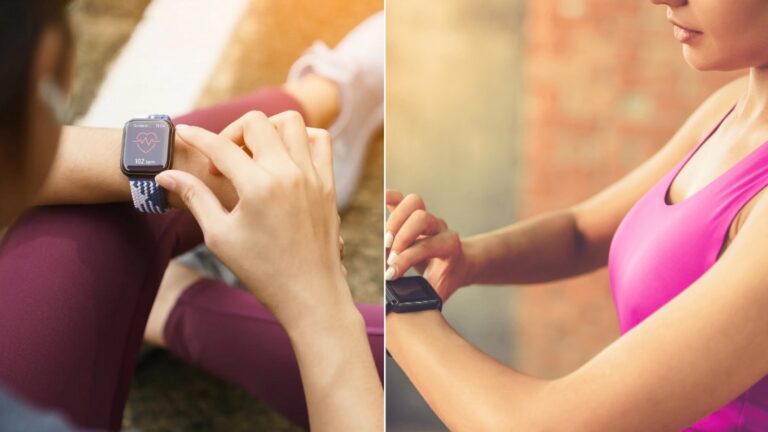The quest for the perfect health companion is deeply personal, especially when it comes to tracking the intricate details of women’s wellness. As we navigate the complex landscape of wearable technology in 2025, the debate between Apple Watch vs Fitbit for women’s health continues to spark passionate discussions among health-conscious women everywhere. Both brands have evolved significantly, offering sophisticated features designed to support women through every stage of life, from adolescence through menopause.
The answer to which device reigns supreme isn’t one-size-fits-all. Your ideal choice depends on your specific health goals, lifestyle preferences, and the technological ecosystem you prefer. Apple Watch excels in comprehensive health monitoring with advanced sensors and seamless iOS integration, making it the best fitness tracker for women who value precision and smart connectivity. Fitbit, meanwhile, focuses on long-term wellness tracking with superior battery life and more affordable options, appealing to those seeking dedicated fitness monitoring without the premium price tag.
Let’s ensure you understand precisely how each platform handles period tracking, fertility monitoring, pregnancy support, and general health metrics. By the end of our comprehensive comparison, you’ll have the clarity needed to choose the women’s health tracking smartwatch that best supports your unique wellness journey.
Science Behind Women’s Health Tracking Technology in 2025
Modern wearables have revolutionized how women monitor and understand their bodies. Today’s smartwatches go far beyond basic step counting, offering sophisticated algorithms that can predict menstrual cycles, track fertility windows, and even monitor pregnancy symptoms.
The technology behind Fitbit vs Apple Watch for period tracking has matured dramatically. Both platforms now use advanced machine learning to analyze patterns in your data, providing insights that were once only available through medical consultations.
Women’s health tracking smartwatches collect data through multiple sensors, including heart rate monitors, temperature sensors, and accelerometers. The integration of this data provides a holistic view of health that extends beyond reproductive wellness to include sleep quality, stress levels, and overall fitness patterns.
Apple Watch: The Premium Health Monitoring Powerhouse
Useful Women’s Health Features
Apple Watch sets the gold standard for wearables for female health with its extensive suite of monitoring capabilities. The Cycle Tracking app, deeply integrated with iOS Health, offers detailed menstrual cycle monitoring that learns from your patterns over time.
The Apple Watch cycle tracking system stands out for its precision and user-friendly interface. You can log symptoms, flow intensity, and mood changes directly from your wrist, with data automatically syncing to your iPhone for deeper analysis. The predictive algorithms become more accurate as they learn your unique patterns.
Temperature monitoring adds another layer of insight, particularly valuable for fertility tracking and management. The wrist-based measurements help identify ovulation patterns, making it an excellent tool for family planning or natural birth control methods.
Advanced Health Sensors and Accuracy
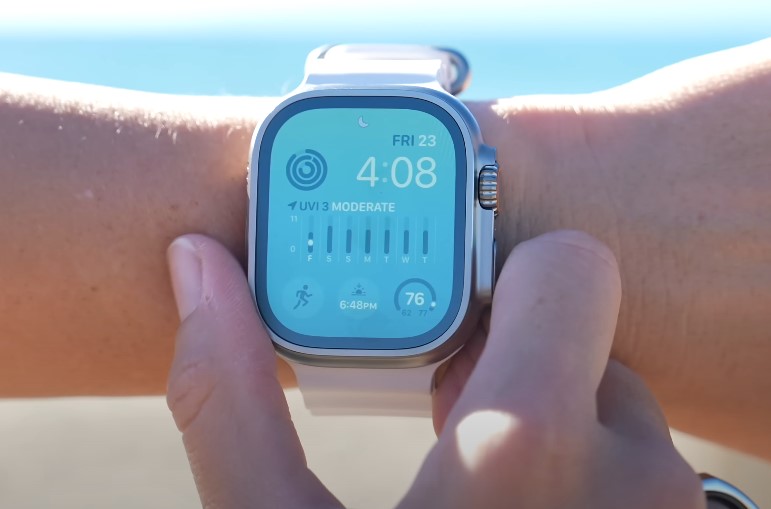
Apple Watch boasts some of the most sophisticated health sensors available in consumer wearables. The ECG functionality, blood oxygen monitoring (where legally available), and irregular heart rhythm notifications provide comprehensive insights into cardiovascular health.
Sleep tracking on Apple Watch has evolved significantly, now offering detailed sleep stage analysis and temperature trends during sleep. For women tracking hormonal fluctuations, sleep data can reveal important patterns related to menstrual cycles and overall hormonal health.
The integration with Apple Health creates a unified health dashboard that consolidates all your data. Blood work results, medical appointments, and wearable data combine to provide healthcare providers with comprehensive health pictures during consultations.
Innovative Features and Ecosystem Integration
Apple Watch excels as a smartwatch with fertility tracking capabilities, offering features that extend well beyond health monitoring. The seamless integration with iPhone, Mac, and other Apple devices creates an ecosystem where your health data flows effortlessly between platforms.
Siri integration enables hands-free health logging, making it particularly useful for tracking symptoms or starting workout sessions. The extensive app ecosystem allows you to customize your health tracking experience with specialized apps tailored to specific conditions or preferences.
The always-on display and cellular connectivity options ensure you never miss essential health notifications, even when away from your phone. Emergency SOS and fall detection add an extra layer of safety, particularly valuable for active women.
Fitbit: The Dedicated Fitness and Wellness Champion
Specialized Women’s Health Tools
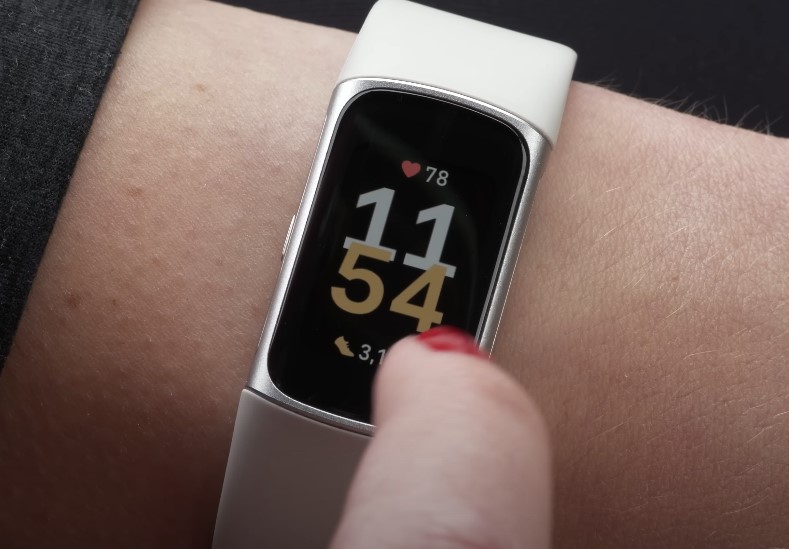
Fitbit has carved out a strong niche in women’s health features, offering comprehensive menstrual health tracking that rivals more expensive competitors. The Fitbit app provides detailed cycle insights, symptom tracking, and fertility window predictions.
What sets Fitbit apart is its focus on long-term health trends rather than moment-to-moment data. The platform excels at showing how your fitness, sleep, and menstrual health interconnect over weeks and months, providing valuable insights for lifestyle optimization.
Fitbit’s approach to wearables for women’s wellness emphasizes accessibility and ease of use. The interface is intuitive, making it simple for users of all technical skill levels to track their health effectively.
Battery Life and Practical Design
One of Fitbit’s most substantial advantages is exceptional battery life. Most Fitbit devices last 5-7 days on a single charge, compared to the Apple Watch’s daily charging requirement. For women tracking multiple health metrics continuously, this extended battery life reduces the risk of missing essential data.
The variety of Fitbit models allows you to choose a device that suits your style and budget. From the basic Inspire series to the advanced Sense lineup, there’s a Fitbit option for every preference and price point.
Water resistance across the Fitbit range makes these devices suitable for swimming and water sports, important for women who maintain active lifestyles throughout their menstrual cycles.
Sleep and Stress Management Focus
Fitbit’s sleep tracking capabilities are among the best in the industry. The platform provides detailed sleep scores, sleep stage analysis, and personalized recommendations for improving sleep quality. For women dealing with hormonal fluctuations that affect sleep, these insights prove invaluable.
Stress management tools, including guided breathing sessions and stress score tracking, help women understand how daily stressors impact their overall health. The correlation between stress levels and menstrual irregularities becomes clearer through consistent tracking.
Fitbit Premium subscribers gain access to additional wellness programs, including specialized content for women’s health, nutrition guidance, and fitness programs designed for different life stages.
Head-to-Head Comparison: Key Features Analysis
Menstrual Cycle and Fertility Tracking
| Feature | Apple Watch | Fitbit |
| Cycle Length Tracking | ✓ Advanced algorithms | ✓ Comprehensive tracking |
| Symptom Logging | ✓ Detailed categories | ✓ Multiple symptom types |
| Fertility Window Prediction | ✓ Temperature-based | ✓ Pattern-based |
| Integration with Health Apps | ✓ iOS Health seamless | ✓ Third-party compatible |
| Historical Data Analysis | ✓ Extensive trending | ✓ Long-term patterns |
Both platforms excel at basic cycle tracking, but Apple Watch edges ahead with temperature monitoring capabilities. Fitbit compensates with superior long-term trend analysis and more detailed symptom categories.
The choice between platforms often comes down to your existing technology ecosystem. iPhone users benefit from Apple Watch’s seamless integration, while Android users may prefer Fitbit’s platform-agnostic approach.
Pregnancy and Postpartum Support
Apple Watch offers pregnancy logging through the Health app, allowing you to track gestational age and receive pregnancy-specific health insights. The integration with healthcare providers means your pregnancy data can be easily shared during prenatal appointments.
Fitbit’s pregnancy support is less comprehensive but still valuable. The platform allows you to log pregnancy and pause menstrual tracking, though it lacks the detailed pregnancy-specific features found in Apple’s ecosystem.
Postpartum recovery tracking is an area where both platforms have room for improvement. Neither offers comprehensive lactation tracking or recovery monitoring, though basic fitness and sleep tracking remain valuable during this period.
Health Monitoring Accuracy and Reliability
Apple Watch generally provides more accurate heart rate monitoring and has FDA-cleared features like ECG and irregular heart rhythm notifications. For women with specific cardiovascular concerns, these advanced monitoring capabilities offer peace of mind.
Fitbit focuses on fitness-oriented health metrics, providing excellent step counting, activity tracking, and sleep monitoring. The accuracy is good for general wellness tracking, though it may not meet medical-grade standards for specific health conditions.
Both platforms have faced scrutiny regarding the accuracy of calorie burn estimates and activity tracking. Real-world testing suggests Apple Watch tends to be more conservative in its estimates, while Fitbit may overestimate certain metrics.
Battery Life and Daily Usability Comparison
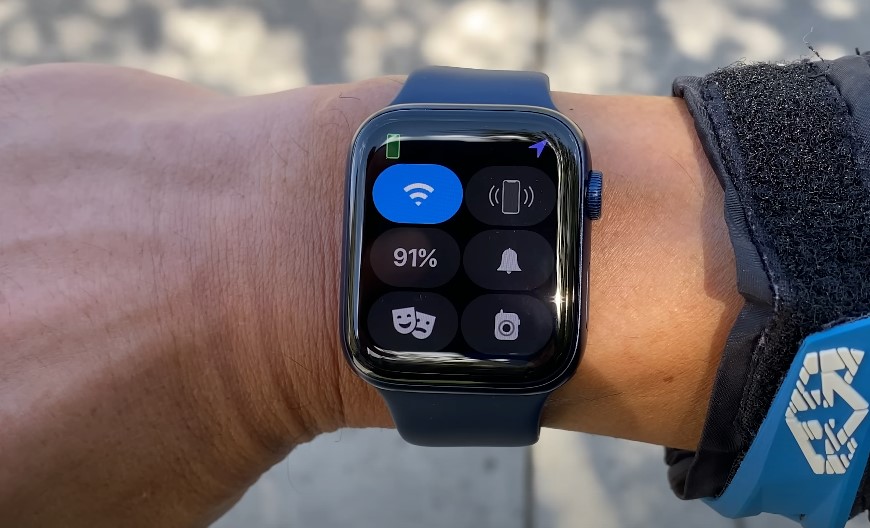
The most significant practical difference between these platforms is battery life. Apple Watch requires daily charging, which can interrupt continuous health tracking if you forget to charge overnight. Fitbit devices typically last 5-7 days, making them more suitable for continuous health monitoring.
For women tracking sleep patterns, temperature trends, and 24/7 heart rate data, Fitbit’s extended battery life provides more consistent data collection. The ability to wear your device continuously without charging breaks is particularly valuable for menstrual cycle tracking accuracy.
However, Apple Watch’s daily charging routine can become habitual, and the faster charging speeds mean you can quickly top up the battery during daily routines like showering or morning coffee preparation.
Cost Analysis: Value for Women’s Health Features
Apple Watch pricing starts around $249 for the SE model and can exceed $400 for premium versions with cellular connectivity. The initial investment is higher, but the comprehensive health features and long-term software support provide strong value for dedicated users.
Fitbit devices range from under $100 for basic models to around $300 for premium options. The lower entry point makes Fitbit more accessible for women beginning their health tracking journey or those with budget constraints.
Subscription costs add to the total investment. Apple Watch users get comprehensive health features without additional monthly fees, while Fitbit Premium ($10/month) unlocks advanced features and detailed health insights. Over time, the subscription cost can make Fitbit more expensive than initially apparent.
Making the Right Choice for Your Health Journey
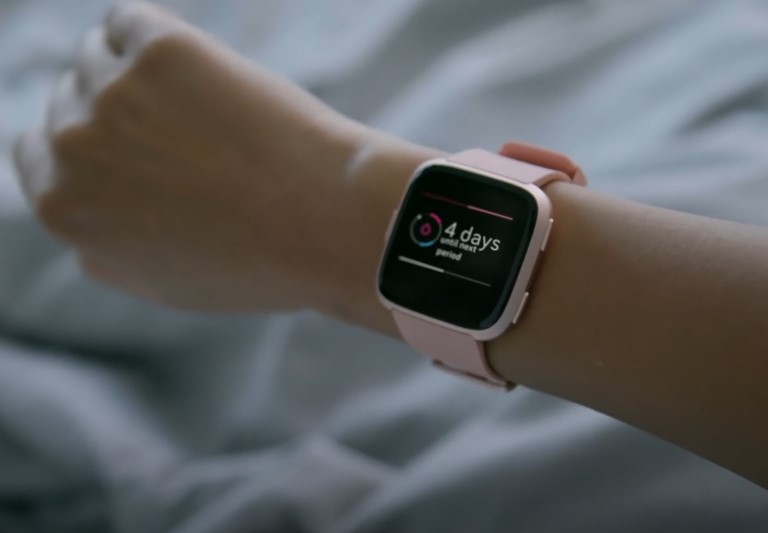
Consider Apple Watch if you’re already invested in the Apple ecosystem and value comprehensive health monitoring with medical-grade features. The seamless integration with healthcare providers and advanced sensors make it ideal for women with specific health concerns or those who want the most detailed health data possible.
Choose Fitbit if you prioritize battery life, affordability, and dedicated fitness tracking. The platform excels for women focused on general wellness, weight management, and fitness goals who don’t need advanced medical monitoring features.
Your decision should also consider long-term commitment. Apple Watch receives regular software updates that add new health features, while Fitbit devices may have shorter lifespans but offer more frequent hardware refreshes at lower price points.
Real User Experiences and Testimonials
@lizwebber Which would you get?? They both have pros and cons for sure. #fitbit #fitbitluxe #applewatch
After spending months with both devices, I can tell you that each one feels completely different on your wrist and in your daily life. My Apple Watch became like having a tiny health detective that never sleeps. It caught my irregular heart rhythm during a stressful work period and gently suggested I check with my doctor. That notification probably saved me from a more serious health scare down the road.
My Fitbit, on the other hand, became my cheerleader and accountability partner. Every morning, it celebrated my sleep score and motivated me to move more throughout the day. The community challenges kept me connected with friends who were also on their wellness journeys. When my period was late and I felt anxious, my Fitbit data showed clear patterns that helped me understand my body better.
Mandy, a working mom from Portland, shared her experience with me: “I wore both devices for six months to see which one truly understood my chaotic life. The Apple Watch was amazing for tracking my pregnancy symptoms and sharing data with my doctor, but I constantly worried about charging it. My Fitbit just worked every day for a week straight, which was perfect when I was too exhausted to remember another daily task.”
Dr. Martinez, a gynecologist I spoke with, mentioned that she now asks patients about their wearable data during appointments. “Both Apple Watch and Fitbit provide valuable insights, but I find Apple Watch data tends to be more detailed for specific health concerns, while Fitbit shows excellent long-term lifestyle patterns that help us understand overall wellness trends.”
Conclusion
The choice between Apple Watch vs Fitbit for women’s health ultimately comes down to your individual needs, preferences, and lifestyle. Apple Watch offers a premium, comprehensive health monitoring experience with advanced sensors and seamless ecosystem integration, making it the best fitness tracker for women who want medical-grade insights and smart device connectivity.
Fitbit provides excellent value with dedicated fitness and wellness tracking, superior battery life, and more affordable options, appealing to women focused on long-term health trends and fitness motivation. Both platforms have evolved to support women’s unique health needs with sophisticated cycle tracking, fertility monitoring, and general wellness features.
Your perfect health monitoring companion should align with your health goals, technological preferences, and budget. Consider starting with the platform that best matches your current needs, knowing that both Apple Watch and Fitbit continue to evolve with new features designed specifically for women’s health and wellness.
The future of women’s health tracking looks bright, with both companies committed to advancing their platforms. Your choice today sets the foundation for years of health insights that can genuinely improve your quality of life and health outcomes.

